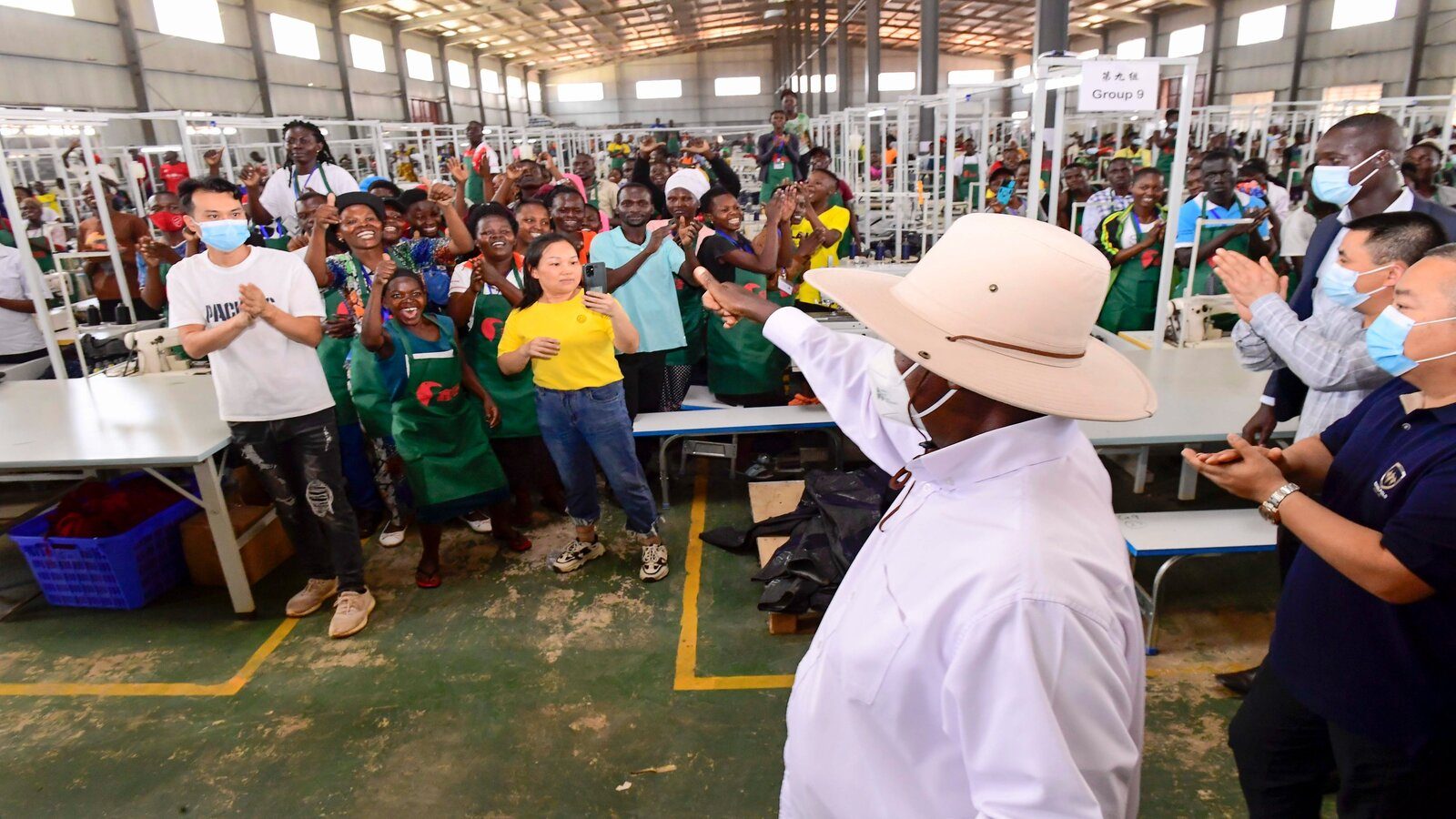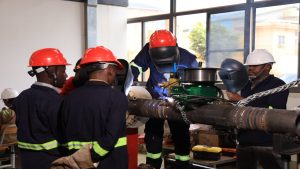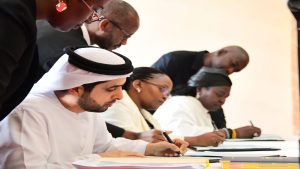Share
The importation of secondhand clothing, cables, and electricity meter wires has been outlawed by President Yoweri Museveni.
Following the launching of 10 additional factories at the Sino-Uganda Industrial Park in Mbale, eastern Uganda, on Thursday, President Museveni issued the decree.
The ten factories are Grace Textile International, Xinlon Textile and Garment Technology, General Wares Uganda, Clear Space Chemical Industries, Lida Perfect Establishment, and Ujia Innovation Technology.
Others include Grace Foam Investment, Hongzh International Limited, Manfu Textile and Garment, Jia Qi Textile Manufacturer, Unisteel Investment Uganda, Nice Textile Uganda, Jinli Packaging Products, and Huawen Steel Manufacturer Limited.
The firms are among 55 others with a combined worth of $600 million that will be built in the industrial park. The industrial park is anticipated to give Ugandans 15,000 new jobs when it is fully operational.
He pleaded with Ugandans to help him ban the importation of used clothing and cables and wires for power meters.

He forewarned that he would stop at nothing to prevent the entry of used clothing, noting that some of these garments belonged to corpses.
Two more will soon be put into service.
Within the next seven months, two other factories that are in advanced stages of construction should be operational.
Through the Uganda Investment Authority, the government of Uganda in 2018 acquired 619 acres and signed a contract with Tian Tang Group, which gathered a group of eight Chinese enterprises to invest in the industrial park.
Mbale will be transformed into an industrial town by President Museveni so that goods like steel and others that utilize a lot of regional raw materials can be produced there.
Industrialization leads to modernity
“We can have a modern society only through industrialization,” said President Museveni. This investment project spans 619 acres, but the facility I recently commissioned to make electric wires is only on 10 of those acres. In addition to creating jobs, it will prevent us from spending around $200 million a year on imports.
A 10-year tax vacation, according to the president, will assist investors who start businesses in established towns and other parts of the nation.
Evelyne Anite, state minister for privatization and investment, stated that the factories will prevent Uganda from importing goods that can now be produced locally and pointed out that exports have greatly grown as a result of the construction of industries.
According to research I conducted at the Uganda Revenue Authority, Uganda has been paying shillings 810 billion on the importation of power cables, but will really save shillings 137 billion by switching. The importing of socks will cost us less than 17 billion shillings, she claimed.
According to Anite, the Government has designated 22 industrial parks for development in order to boost industrial production, create jobs, and facilitate equitable economic transformation. One of these parks is the Sino-Uganda Mbale Industrial and Business Park.
The formation of industries, according to Paul Zhang, the chairman of Tian Tang Group, will promote growth and economic development in the nation.
Connie Nakayenze Galiwango, a member of parliament for Mbale City, praised the Uganda Investment Authority for compensating all those impacted by the project.
Galiwango requested that the investors build schools and health clinics for the employees and surrounding communities.
Strict preventative measures including hand washing with detergent, scanning, and maintaining of social distance are required to protect against the transmission of the coronavirus.
Lydia Wanyoto, the NRM women’s league chair, pleaded with the government to look at the situation.
She also requested that the government lower the cost of new clothing and enhance clothing production to meet rising demand.









